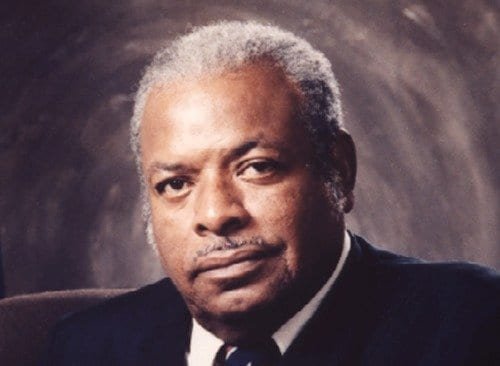Early Life and Education: Errol Barrow was born on January 21, 1920, in The Pine, Saint Michael, Barbados. His father, Rev. Reginald Grant Barrow, was a minister, and his mother, Ruth Barrow, was a domestic worker. Growing up in a large family, Errol experienced the challenges that came with modest beginnings, but his parents valued education and encouraged their children to aim high.
Barrow attended Combermere School, one of Barbados’s most respected schools, where he showed promise as an excellent student. Afterward, he continued his studies at Codrington College, a school known for training Anglican clergy. But his journey took an unexpected turn when World War II broke out, and he joined the Royal Air Force (RAF). As a navigator in the RAF, he gained a broader perspective on the world, which would later shape his political ideals.
Post-War Education and Legal Career: After the war, Barrow traveled to the United Kingdom to further his education. He enrolled at the London School of Economics (LSE), earning degrees in economics and law. His time in the UK expanded his horizons and gave him the tools to pursue a career in law and politics. When he returned to Barbados, he started his own law practice, quickly earning a reputation for being smart and dedicated to justice.
Getting Into Politics: Barrow’s legal career led him into politics. He joined the Barbados Labour Party (BLP) and became a member of the House of Assembly, the country’s parliament. But he wasn’t afraid to stand up for his beliefs. When he found that his views didn’t align with the BLP’s leadership, he took a bold step and founded the Democratic Labour Party (DLP) in 1955. This move showed he was willing to carve his own path.
In 1961, Barrow became the Premier of Barbados, which was still a British colony at the time. His leadership was marked by a focus on social and economic reforms, like improving education, healthcare, and public infrastructure. He also pushed for regional cooperation among Caribbean countries, playing a key role in creating the Caribbean Free Trade Association (CARIFTA).
Leading Barbados to Independence: Barrow’s greatest achievement was leading Barbados to independence. Under his guidance, the country declared its sovereignty from Britain on November 30, 1966. Barrow became the first Prime Minister of an independent Barbados, a role that brought great responsibility. He worked hard to build a strong national identity and to ensure that all Barbadians had opportunities for success.
Challenges and Political Setbacks: Of course, being in politics isn’t all smooth sailing. Barrow faced plenty of challenges, from economic ups and downs to political criticism. In 1976, his party lost the general election, and the Barbados Labour Party, led by Tom Adams, took over. Despite this setback, Barrow didn’t give up on his vision. He continued to work with his party, rebuilding its base and advocating for the changes he believed in.
Return to Power and Legacy: Barrow made a successful political comeback in 1986, winning the general election and returning as Prime Minister. During his second term, he focused on regional cooperation and strengthening Barbados’s role in the Caribbean. Unfortunately, his time in office was cut short when he died on June 1, 1987. His sudden passing was a significant loss to the nation, but his legacy lived on.
Real Name: Errol Walton Barrow
Date of Birth: January 21, 1920
Birth Place: The Pine, Saint Michael, Barbados
Residence: Barbados (lived in various locations within the country during his lifetime)
Profession: Politician, Lawyer, RAF Navigator
Nationality: Barbadian
Religion: Anglican
Partner: Carolyn Barrow
Father: Rev. Reginald Grant Barrow
Mother: Ruth Barrow
Horoscope: Aquarius
Age: 67 (at the time of death in 1987)
